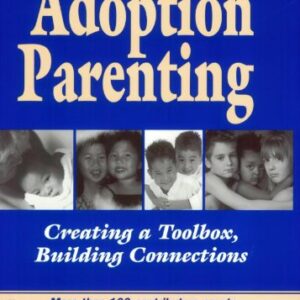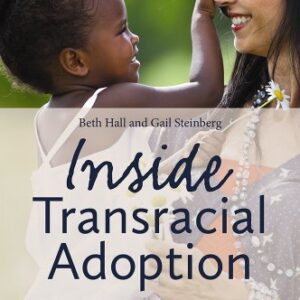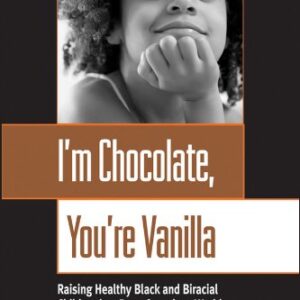Pact Point of View: Adoptism – A Definition
Racism:
- A belief that race is the primary determinant of human traits and capacities.
- A belief that racial differences produce an inherent superiority of a particular race.
Sexism:
- A prejudice or discrimination against someone on the basis of gender.
Adoptism:
- A belief that forming a family by birth is superior to forming a family by adoption.
- A belief that keeping a child with his/her biological parents is inherently better than placing a child for adoption.
- A belief that growing up as an adopted person is the primary determinant of human traits and capacities.
- A belief that differences in family-building structures or methods produce an inherent superiority in families of a particular structure or method.
- Prejudice or discrimination against members of the adoption triad.
After placing her child for adoption, Andrea became a successful doctor and mother of two (more). We met Andrea at a workshop for adoptive parents, where she was speaking about her experience as a birth parent. She is a survivor who made the best choice she could and lived through and with it.
“People try to be there for me, they try to understand, but it’s hard to hear the words that they offer because what’s behind them is the way they really feel: Knowing I wasn’t ready to be a parent…. Disappointing my family and friends, who thought they knew me…. Wanting my child to be with me but knowing I’m not the best choice…. Perhaps the hardest of all is to hear someone say, ‘I think what you did was wonderful but I could never do it myself.’ To be set apart is one of the hardest parts of being a birth mother — not only did I lose my child, but most of the world judges that I was wrong, out of sync with the deepest laws of nature for making a choice that no ‘real’ parent, who truly loves her children, could make herself.”
Andrea gave words to a reality and pain that isn’t often perceived, even by those who may love us best. Parents who choose adoption for their children are commonly considered not as good or as valid as parents who parent their children.
Ben is an adult who was adopted at birth. He is now married, and he and his wife have a two-year-old who was born to them. They are hoping to adopt a second child. He told us this story:
“I remember when I told my best friend that Lynn and I were planning to adopt. I couldn’t believe his response. ‘Why would you even think of that?’ he said. ‘You guys make great kids. Why would you want to take in someone else’s cast-off without knowing what you’re getting?’ All I thought was, ‘Wow! You know I’m adopted and that’s what you say to me? What do you say about me when I’m out of the room?’”
Ben gave words to an incredulity many adopted adults have expressed; that others hold a hidden bias about adoption and that they never know when it will pop out and cause pain. Even those who love them best may say something unexpected, summoning up the stereotype that adopted means reject, cast-off, bad seed, etc. People who are placed for adoption are commonly considered to have not been as valued by their birth parents as children who are raised within their original families.
We met Sarah in the intimacy of a grief support meeting. Each person present had lost a child when a birth parent reclaimed custody. Three years before, Sarah and her husband had lost their son Greg (adopted at birth) when he was four months old. They had since adopted a little girl. Sarah spoke as a survivor, someone who had faced the worst she could have imagined and lived through it.
“When Christine came and took away Greggie,” she said, “people tried to be there for us. Everyone tried, but something always seemed off when they tried to comfort me. I just couldn’t shake the feeling that underneath, even our closest friends secretly felt that her reclaiming him was somehow more right than his staying with us — right, according to some higher order of things. Feeling sorry for us was something separate. I know our friends and family did feel sorry for us but something else was going on, something no one ever talks about. I’ve come to think that most people deep down believe that birth mothers and children belong together — no matter what. Nobody ever said that to us straight out, but it was there. I think even the people who love us the best had those feelings, but nobody would ever come right out and say anything. Feeling set apart from everyone was one of the hardest parts of losing Greggie for me. Not only did I lose my baby, but in even thinking that I might be the best parent for him I was wrong.”
More than one pair of eyes welled up with tears. Sarah had given words to a hurt that isn’t often spoken: that even those who love us best may not regard our families formed by adoption as valid compared to families formed by birth – even those who love us best. There was a long pause in the conversation after she spoke, as the hard truth sank in.
These are examples of adoptism at its core. Adoptism is a cultural belief that families formed by adoption are less truly connected than birth families; that birth families should be preserved at all costs and under all circumstances except the most severely harmful; that people who were adopted were first rejected, maybe for a reason. No matter what place you hold in the adoption triad, such judgments and discriminations feel the same. As a society, we tend to understand the dangers of bias based on race, gender or class. Adoptism is no different. Adoptism is just as damaging.
And we absorb the biases of our society as we grow up. As with racism and all the other “isms,” it’s through recognizing our deepest attitudes that we can change those that must be changed. Perhaps society’s belief that parents must stay with their children is linked to the dark fears of childhood: “What will happen to me without Mommy and Daddy? Who will take care of me?” Maybe some of the bias against adoption is an extension of the voice of that child who can imagine no means of survival but for parents to take care of children born to them.
Whatever adoptism’s sources, the important thing is that we can change ourselves and our attitudes. Recognition allows forgiveness. We can forgive others because we share their fears. We can feel part of, instead of separate from, victims or survivors. Understanding the bias takes away its power. Adoptism is alive and well and everywhere. Let’s do something about it.






